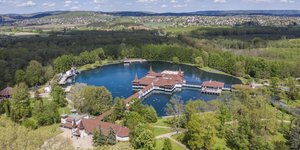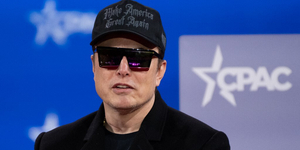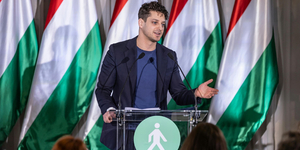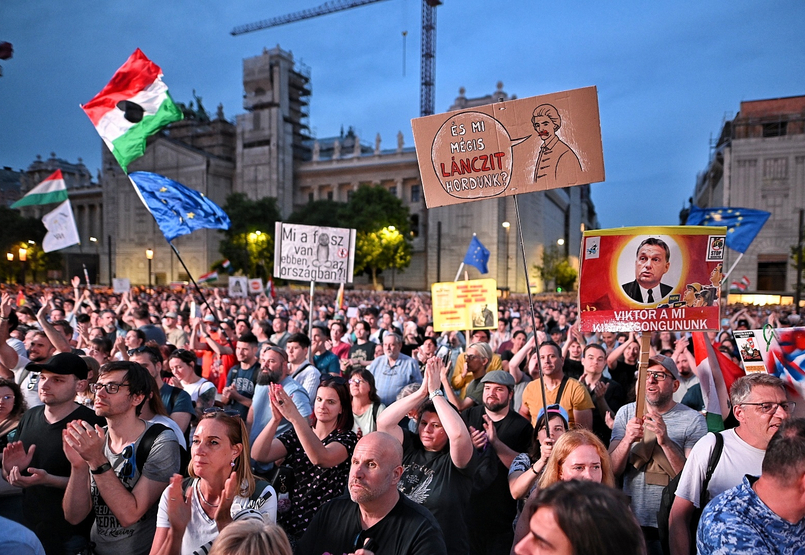Matyas Eorsi meets with Cuban opposition leaders
Matyas Eorsi, Free Democrat parliamentary group leader and head of the liberal benches in the Council of Europe's parliamentary assembly, recently visited Cuba. There, he and some Estonian and Dutch MPs defied police threats to meet up with prominent opposition activists. He met with members of the Women in White movement, who are fighting for the release of group members who have been imprisoned for political reasons.
hvg.hu: It must have been a risk to visit a police state as an unofficial tourist and seek contacts with opposition activists.
M.E.: I assembled the Council of Europe's small delegation to make clear that human rights do not depend on any kind of party ideology. I visted Cuba with Eric Jurgens, a famous Social Democrat law professor and Andres Herkel, an Estonian Christian Democrat. The secret police followed our movements closely, almost expelling our interpreter. They made clear to us that they were aware of our meetings and that it would be better if we spent our time relaxing by the sea. But we managed nonetheless to speak with 20 or 25 opposition activists and civil society leaders. I gave an account of Hungary's experience of a regime change, which interested them greatly. We brought medicines and books for the members of the Women in White movement and assured them that we would do everything to make their cause better known in Europe.
hvg.hu: Why do you believe Cubans have had enough of Socialism?
M.E.: In Hungary, the Hungarian Socialist Workers' Party (MSZMP) claimed until the very end of the 1980s that the people supported the system as one man. We know they were wrong. Things started differently in Cuba, of course. Castro's revolution enjoyed broad support, and people were glad at the fall of the Batista regime. But there have never been free, democratic elections in Cuba. Nowadays, the number of political prisoners and people sentenced to labour camps is greater than the number imprisoned in the last years of the Batista regime.
We know that the communist secret police receives 40,000 reports a day, and the regime keeps citizens under intensive observation. Just recently, two university students, just because they were talking to diplomats on the street, were convicted of "harassing foreigners" and given long prison sentences. There are many other examples of the way Cuba's totalitarian regime cannot endure people who think differently. The signs are that Fidel Castro, who is seriously ill, is unable to win back control of the country, and his brother Raul, the current leader, is open to various 'Chinese style' economic reforms.
hvg.hu: In Hungary, the disagreements between the former opposition activists came out into the open almost immediately after the collapse of the regime. In 1990, the conflict between the Hungarian Democratic Forum (MDF) and the Free Democrats (SZDSZ) was obvious for all to see. The 1994 Socialist electoral victory was the fruit of all this. Did you tell the Cubans about that?
M.E.: It's for historians to judge what happened between 1989 and 1994 in Hungary. But the largest opposition party claims that the SZDSZ was always Communist, and that this is proven by the way it conducted politics after the regime change. But we fought against communism, against the system, and when the regime fell, we saw no reason not to enter into a coalition with the Socialists. It's true that numerous SZDSZ leaders held senior positions in the Kadar regime, but I don't think they were true believers in communism as an ideal. In any case, the Socialist Party has been legitimised by five free elections since the regime change. So a democrat cannot reject an alliance signed in the name of the future by focusing purely on the past. I spoke about this with the Cuban opposition activists, preparing them for the fact that after the fall of the Castro regime the former functionaries would enter into the world of democratic politics. It may even happen, as it did here, that a journalist from the party's official newspaper will become the editor-in-chief of a radical nationalist, right-wing newspaper.
hvg.hu: In Cuba, and in other countries, there are fears that if the current regime collapses, a narrow economic and political elite will hold on to power, perhaps using democratic means, and that the Florida exiles will return to the island and get back their confiscated property, land and businesses.
M.E.: Neither in Europe nor in America does anyone contest the fact that the Cubans must determine Cuba's future, and that foreigners have no role to play in this. But it's useful for Cubans to familiarise themselves with international experience of democratic transition. Not just central Europe's transition, but the Spanish and south American transitions. As far as the Florida exiles are concerned, opinion is divided. Most of the first generation is dead, and their children have integrated into American society. They do not have their parent's radicalism. If the current Cuban regime collapses, then the exiles will return, and there will be a lot of economic pressure, inequality will grow and there might be an even deeper social divide than there is in Hungary. It will be the task of a new, democratic Cuban government to deal with these problems. I tried to give an objective account of the positive impact of multinational companies and of the disadvantages they had brought as well.
hvg.hu: A personal question. At the end of the year, you have to resign as leader of the SZDSZ group in parliament in favour of Janos Koka. Do you regret this?
M.E.: A lot of unfounded speculation appeared in the press after Koka's announcement. They referred to me as the loser in the affair, even though I had accepted this scenario when Koka was elected party leader. It's true that I didn't then know when elections for parliamentary group leader would be held. I won't deny that I've enjoyed being group leader. It was a great challenge. But leaving the post has benefits. I can spend more time on foreign affairs, which interests me greatly, and devote more energy to my role as chairman of the European Affairs parliamentary committee and leader of the Liberal group in the Council of Europe's parliamentary assembly.
hvg.hu: The best possible post, then, would be foreign minister. When the second Gyurcsany government was being assembled, your name was mentioned as a possible foreign minister. But it didn't happen. Were you disappointed?
M.E.: My personal ambitions have always been subordinate to the greater political good. At the same time, if the stars are so aligned, and if the SZDSZ nominates me as a minister, and if the party elects me, I wouldn't say no.
János Pelle


















